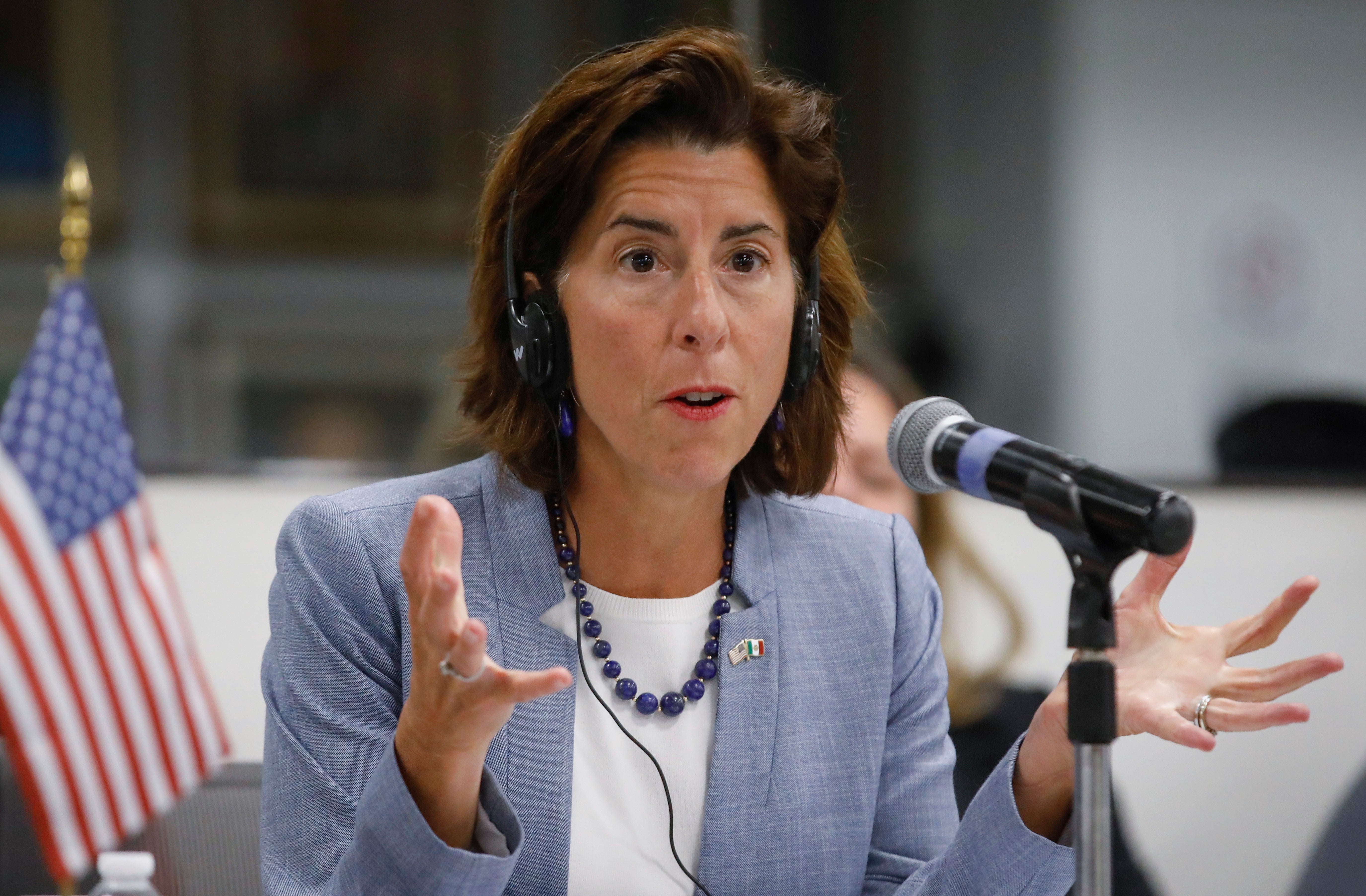Raimondo: US isn't seeking to sever economic ties with China
The United States isn’t seeking to sever economic ties with China — even as it takes steps to protect America’s technological and military prowess from Beijing

Your support helps us to tell the story
From reproductive rights to climate change to Big Tech, The Independent is on the ground when the story is developing. Whether it's investigating the financials of Elon Musk's pro-Trump PAC or producing our latest documentary, 'The A Word', which shines a light on the American women fighting for reproductive rights, we know how important it is to parse out the facts from the messaging.
At such a critical moment in US history, we need reporters on the ground. Your donation allows us to keep sending journalists to speak to both sides of the story.
The Independent is trusted by Americans across the entire political spectrum. And unlike many other quality news outlets, we choose not to lock Americans out of our reporting and analysis with paywalls. We believe quality journalism should be available to everyone, paid for by those who can afford it.
Your support makes all the difference.The United States isn’t seeking to sever economic ties with China — even as Washington takes steps to protect America’s technological and military prowess from Beijing, U.S. Commerce Secretary Gina Raimondo said.
Speaking to reporters in advance of a speech Wednesday on the Biden administration’s China policy, Raimondo said: “We’re not seeking the decoupling from China. We want to promote trade and investment in areas that don’t threaten our core economic and national security interests or compromise human rights values.’’
Relations between the world’s two biggest economies have chilled over the last decade, partly because the communist government in Beijing has cracked down on dissent in Hong Kong and on Muslims in the northwestern region of Xinjiang.
President Donald Trump imposed massive taxes on Chinese imports in a dispute over the strong-arm tactics — including the alleged theft of trade secrets — that Beijing has used to challenge America’s edge in technology.
The Biden administration has kept Trump’s tariffs and has stepped up a campaign to keep the Chinese from acquiring sensitive technology that could speed its military buildup. Most notable was the decision last month to block exports of advanced computer chips to China.
The administration has also sought to make the United States more competitive by investing in infrastructure and pouring more than $50 billion into the semiconductor industry.
For years, Raimondo said, the United States “pursued a policy of engagement with China,’’ hoping that Beijing would open its economy to foreign competition.
“But China took a different path,’’ she said. “China’s leaders have made it very clear they don’t plan to pursue political and economic reform and opening. Instead, they are committed to increasing the role of the state in the Chinese society and economy, constraining the free flow of capital and information. Further, they’re accelerating their efforts to fuse their economic and technology policies with their military ambitions.’’
The result, she said, was that “interdependence with China introduces significant new risks for our national security.’’
But Raimondo rejected the idea that the United States should seek to isolate its economy completely from China’s.
“We need to continue to do business with China,’’ she said. “Trade with China supports American jobs.’’